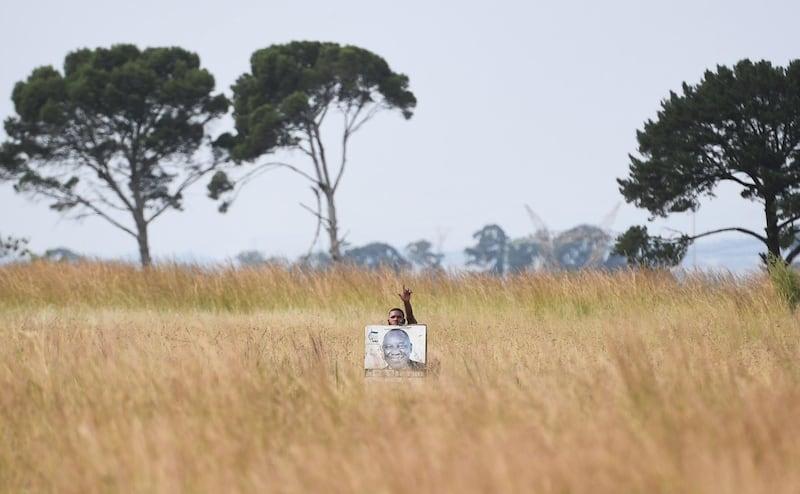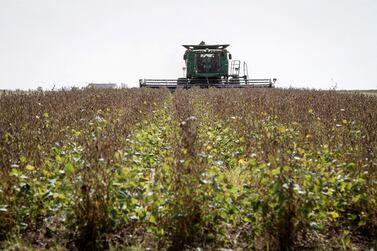With a third of the workforce jobless and supplies of essential services such as water and electricity increasingly erratic across South Africa, the country’s reformist president Cyril Ramaphosa needs a solid victory in next month’s election. The alternative is that President Ramaphosa will be pushed aside by radicals in his own party – a result that would plunge the nation further into uncertainty and hamper growth.
The African National Congress has led the country for 25 years, securing its first election victory with Nelson Mandela in 1994 as its leader. Today, the party is mired in corruption scandals. Yet the party is still guaranteed to win, largely due to loyal support in the countryside.
In the cities however, the picture is very different. Polls show the ANC could lose Gauteng province to the opposition Democratic Alliance, which includes the industrial heartland of Johannesburg. A loss here would put an end to one of the party’s most important patronage networks and could lead to a revolt in the ANC’s ranks.
In particular, it could lead to supporters of former president Jacob Zuma making a comeback. Mr Zuma’s faction lost out to Mr Ramaphosa in a bid to control the ANC during its national conference in December 2017.
“It is well-known that the Zuma faction has not disappeared since the election of Ramaphosa as president at the ANC's national conference,” says Melanie Verwoerd, a former ANC member of parliament. “They are fighting back – big time. So vicious is the fight that the ANC has not even been able to keep it under wraps until after the elections.”
Should the Zuma-ites return, the consequences will be dire. As his presidency waned, Mr Zuma sought to shore up his sagging popularity by siding with radicals pushing for state control over farmland, banking and the mining industry.
Mari Harris, director of public affairs at Ipsos, a market research firm, gives the ANC 61 per cent of the upcoming election - exactly what the party needs according to analysts to achieve a mandate from citizens for reforms that will spur much-needed growth.
“The election will be an inflection point in our recent history,” says Wayne McCurrie, senior portfolio manager at FNB Wealth and Investments in Johannesburg. “If Ramaphosa gets a high percentage of say, above 58 per cent, and gets a mandate from the electorate to make the necessary management and structural changes, South Africa could materially change its growth profile to 2 per cent-plus by 2021.”
Of these, land will be the biggest test of the new administration following the elections. According to Africa Check, a data verification non-profit, whites own more than 72 per cent of commercial farms. Blacks own just 4 per cent, with the rest belonging to other ethnic groups such as Indians.
The issue has become one of the biggest talking points in the country, especially since the ANC has taken a decision to end constitutional protections for private property ownership. Mr Ramaphosa established a panel to look into the issue, and released part of its findings in April
Among other recommendations, the panel suggested a change to the constitution to allow for expropriation without compensation. Agri SA, the country’s largest farmers union, which said it would release its own ‘minority report’, rejected the findings.
“The president should be able to weigh up alternatives and decide what South Africa needs,” Agri SA President, Dan Kriek said. “The minority report is progressive in nature and focuses on practical agricultural common-sense plans.”
Mr Ramaphosa himself appears opposed to changes to the constitution, a document he helped draw up in the early 90s when the apartheid government and liberation movements finally sat down and talked.
In April, he reassured a group of farmers and media outside Cape Town that any process to redistribute land would follow the constitution.
“I can assure you that the land reform process is something we should never fear,” he said. “It is to be done in accordance with the rule of law and the Constitution. It is not going to be land grabs, where land is grabbed outside of the parameters of law.”
Until the elections however, it is unclear whether Mr Ramaphosa has the backing in his party to hold off radicals who want full nationalisation of farmland and Zimbabwe-style occupations.
Meanwhile, he also has to turn around ailing state enterprises such as state electricity utility Eskom. For many, South African voters' electricity is an even more pressing an issue than land. Rolling electricity cuts of up to 8 hours a day in March, with analysts warning of more to come have disillusioned voters across party lines.
“Eskom took my electricity, why I should vote for the ANC again, really?” says Lamu Tloubatla a street vendor in Cape Town. Mr Tloubatla has previously cast his ballot for the party, but has watched as it succumbed to corruption scandals that have mired Eskom with more than 440 billion rand in debt. Mr Tloubatla says he has little faith a new president will change institutionalised graft. “Don't tell me about Ramaphosa, he's been there from the start, he's in this.”
Mr Ramaphosa is also going to have a tough sell getting voters to believe he can end joblessness. Mining is the most important job creator, and contributes 356 billion rand to the economy, or 7.3 per cent of the country’s GDP, and employs around 450,000 people. Now though, the industry is shedding workers at a rapid pace. One study by consultancy firm Deloitte estimates 100,000 jobs were cut by mines in the past 4 years alone.
In April, industry body the Minerals Council of South Africa (MCSA) warned that a further 100,000 jobs in the platinum sector are at risk due to a combination of strikes, weak demand, declining productivity, growth in recycling and the rising cost of electricity.
“Rapidly escalating costs are responsible for the red line in platinum’s revenue stream, which is why I say if you are in platinum mining, fasten your seatbelts,” says Roger Baxter, chief executive of the MCSA.
Mr Ramaphosa has rolled back plans devised by his predecessor Jacob Zuma to hand greater black control to mining companies, which had scared off investors. While investment is beginning to return, the industry is now battling with record-breaking electricity price increases of 29 per cent that Eskom wants to impose.
Gold mining, once the country’s major mineral export, would be especially hard hit by electricity costs. Many of these operations are now operating deep below ground, up to 5 kilometers in some cases, with similar electricity requirements as small towns.
“If Eskom gets its way with the electricity price increases, deep level mining will cease to exist,” Mr Baxter says.
With these pressing issues at the top of voters’ minds, it is uncertain whether Mr Ramaphosa can bring his party home with a sprint across the finish line, or will merely limp over to a marginal victory.








